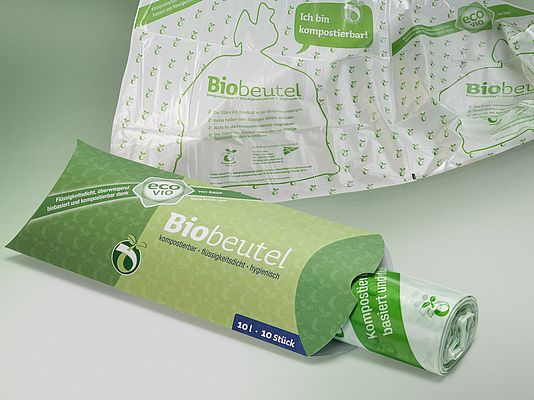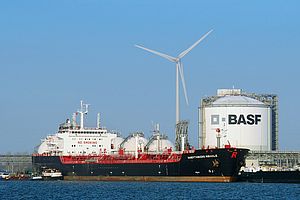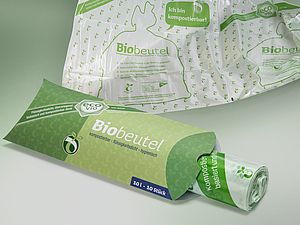To help close the nutrient cycle towards a circular economy, BASF has developed a material portfolio that is suitable for applications throughout the entire food cycle. Compostable plastic ecovio® gives advantages for the production, packaging and transport, as well as waste collection of food, based on the material’s certified biodegradability in industrial and home composting, and in soil. Thus, food waste is reduced, nutrients are returned to the soil by means of greater volumes of compost generated and the accumulation of plastics in soil is avoided.
Sustainable agriculture in a circular economy
For instance, ecovio® M 2351 is a certified (EN 17033) soil-biodegradable plastic for mulch films, consisting of the biodegradable copolyester ecoflex® (PBAT) and other biodegradable polymers made from renewable raw materials. Films made from ecovio® M 2351 can be left in the soil after harvesting, rather than being usually removed and recycled. Naturally occurring microorganisms in the soil, such as bacteria or fungi, recognize the structure of an ecovio® M 2351 mulch film as food that they can metabolize. The remaining end products after biodegradation by microorganisms are CO2, water and biomass.
Intelligent packaging to avoid food waste
Fruit and vegetable bags made of ecovio® show better water vapor and oxygen transmission rates for an optimal humidity and oxygen concentration for different fruit and vegetables in a bag, with the right volume. This results in a longer shelf life thus, tomatoes, for example, can be stored for up to four times longer in ecovio® bags than in PE bags. Moreover, fruit and vegetable bags made from ecovio® can be reused as organic waste bags, to improve the collection and recovery of food waste. Furthermore, the valuable compost from dual-use bags can subsequently be used to increase the nutrient density in the soil, thus closing the nutrient cycle.



















